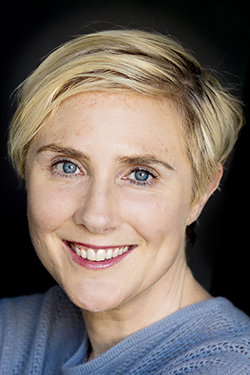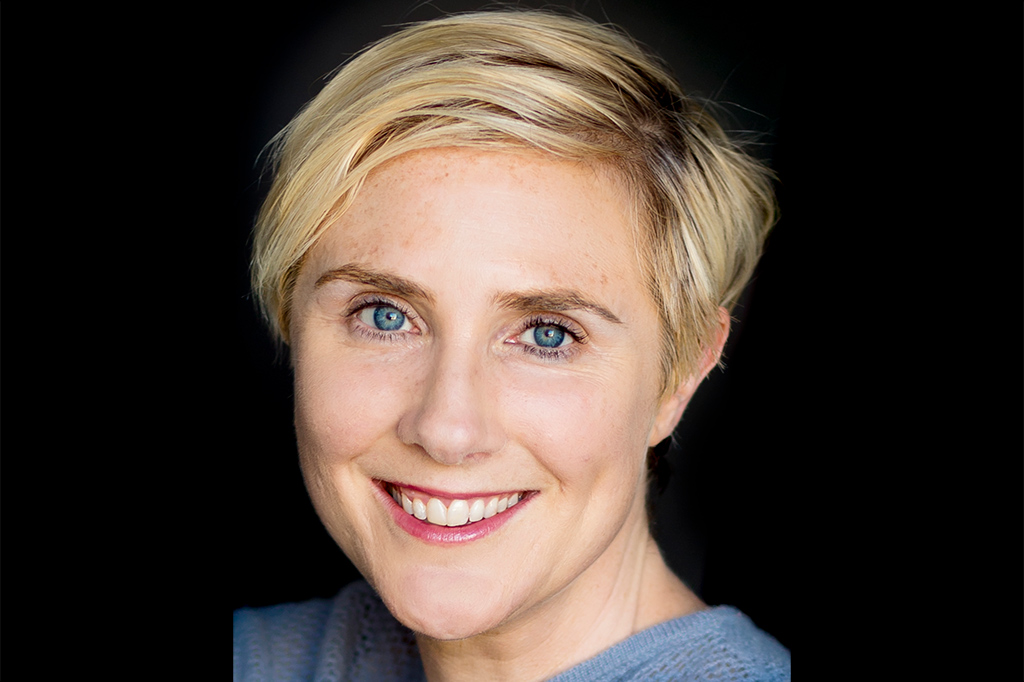Mommy, Where’s Your Hair? (And Other Questions I Faced as a Parent with Cancer)

Laura Holmes Haddad
Post by Laura Holmes Haddad
Stage IV Inflammatory Breast Cancer SurvivorIt’s one thing to have cancer, and quite another to have children witness it. At age 37, I was diagnosed with Stage IV inflammatory breast cancer; I had a large tumor in my left breast, and the cancer had spread to lymph nodes and a rib. And I had a 14-month-old son and a 4-year-old daughter. Parenting with cancer is sadly not an uncommon phenomenon; according to the American Academy of Child and Adolescent Psychiatry (AACAP), almost 3 million children in the U.S. have or have had a parent diagnosed with cancer. Put another way, 1 in 5 adults diagnosed with cancer in 2013 had children under the age of 18.
I did not have a good prognosis. But trying to stay positive (or at least look positive) was just as challenging as undergoing cancer treatment. While I embraced the notion of “fake it ’til you make it,” children are wiser than we realize. Taking care of the kids—physically and emotionally—was just as important as taking care of me. I was so lucky to have my family nearby (my sister, brother-in-law, and their three daughters, as well as my mom and my dad), and a community of families that offered to help in so many ways. But even then, I didn’t feel prepared: for my own feelings of sadness and anger at “missing out” on my kids’ childhood moments; of essentially giving up control of the kids’ day to day lives; of the most primal fear of dying and leaving them without a mother.
I had amazing moments with my kids and truly awful moments and everything in between during my cancer treatment. And now that I’m in remission and in survivorship, it’s easier for me to summarize what worked and what didn’t.
What I learned as a cancer patient parent:
- Think quality over quantity. Make the best of the time you have. Save all your energy for a 30-minute playtime outing to the ice cream store, or reading books on the couch versus 10 minutes a day when you are struggling to stay awake.
- Get support—for you and the kids. Ask your medical team about psychosocial support at the hospital or medical center. Getting professional help—in terms of talking about cancer and what to say and not to say to the kids—can be extremely helpful. This is particularly true if you are facing a not-so-great prognosis. Cancer hits the entire family, and often your spouse, partner, or other caregivers don’t know what to say either and often stay silent. Having some professional guidance from a therapist and/or child psychiatrist can do wonders (it helped our family so much).
- Try to keep things as routine as possible for the kids, even though their life/lives have been turned upside down. Routine is a comfort to children.
- Try to prepare yourself for their questions. I almost fell out of my chair when my five-year-old daughter asked me, “When will your boobies grow back?” But then I asked a friend to go to the library and get me some books about cancer that I could read with the kids. Books are also often available at the resource center at the hospital, as well as from oncology social workers; ask your oncologist. My two favorites are Let My Colors Out by Courtney Filigenzi and Nowhere Hair by Sue Glader. There are so many more, for kids in every age group; many are also available in Spanish.
- Create a strategy for communicating with the kids. Working with your spouse, caregiver, family, teachers, coaches, etc., try to establish some guidelines about what you will and will not share about your cancer treatment so that everyone is on the same page and there are no “slip-ups” or surprises. There is nothing worse than having your child come home and tell you what Uncle Bob or Grandma told them about your cancer.
- Find and utilize resources for the kids. There are dozens of programs in the U.S. that work with kids whose parents are going through treatment. From financial support for after-school activities (e.g., Cancer in the Family Relief Fund) to free summer camps (e.g., Camp Kesem, or Camp Mak-A-Dream), take advantage of the help that is out there while you focus on treatment.
My hope is that something on this list will bring comfort to you, facing the unimaginable task as a parent: going through cancer treatment while remaining an active part of your kid(s)’ lives.
Also by Laura Holmes Haddad:
https://canceradvocacy.org/blog/ask-oncologist-clinical-drug-trials/
About the Author
Laura Holmes Haddad is a writer and Stage IV inflammatory breast cancer survivor from California. Her book This is Cancer: Everything You Need to Know, from the Waiting Room to the Bedroom was published In October 2016.
The views & opinions expressed in any guest post featured on our site are those of the guest speaker and do not necessarily reflect the opinions & views of the National Coalition for Cancer Survivorship. Read our blog and comment policies here.



